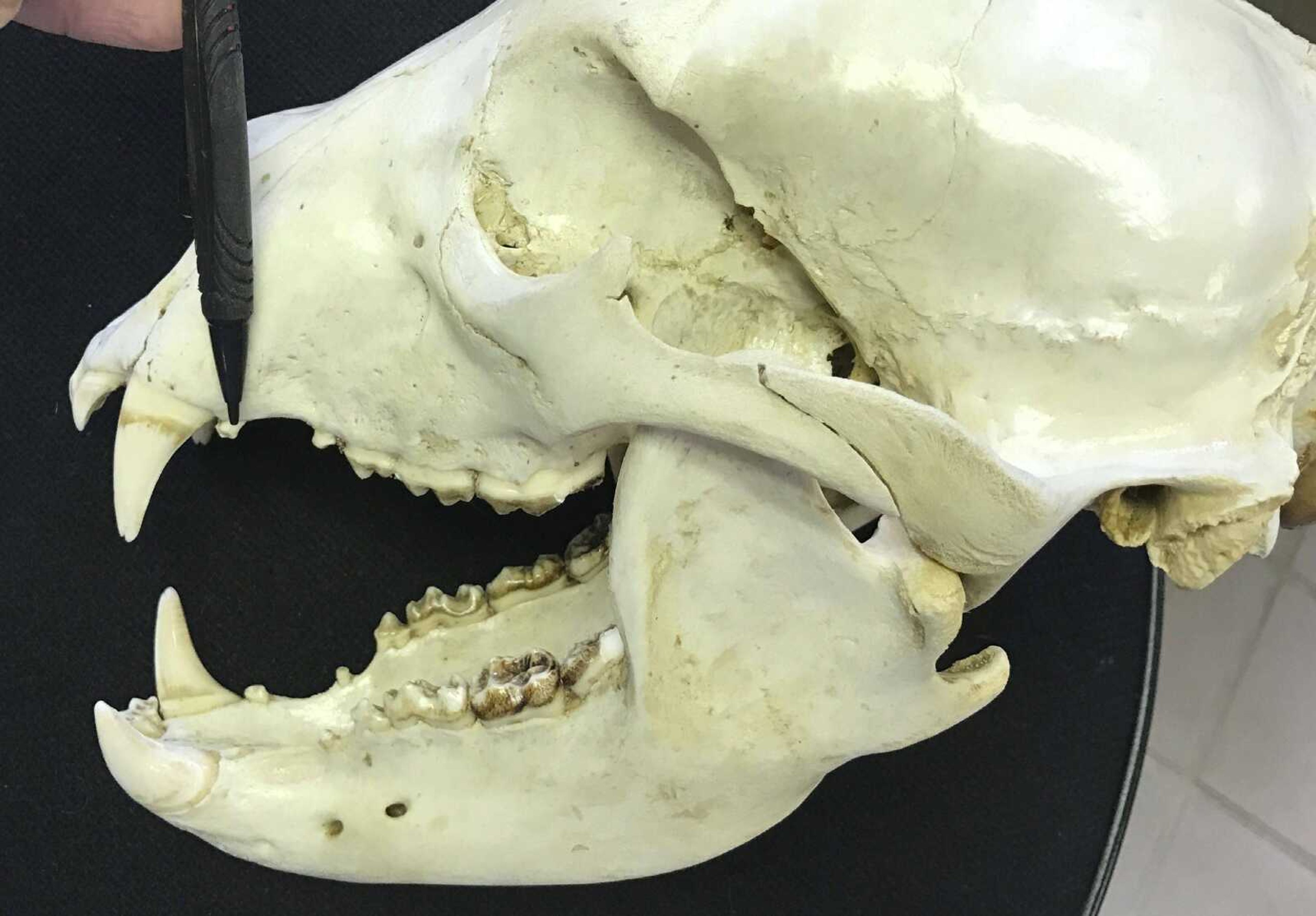Growing bear population means thousands more teeth to sort
BRIDGTON, Maine -- Carolyn Nistler is at the forefront of a boom in a resource that plays a key role in the management of American wildlife: bear teeth. Nistler, owner of a Montana lab, and others are sorting through a windfall of teeth taken from American black bears, which use their powerful jaws to crush hazelnuts and chew salmon flesh...
BRIDGTON, Maine -- Carolyn Nistler is at the forefront of a boom in a resource that plays a key role in the management of American wildlife: bear teeth.
Nistler, owner of a Montana lab, and others are sorting through a windfall of teeth taken from American black bears, which use their powerful jaws to crush hazelnuts and chew salmon flesh.
The growing population of the bears in the United States has scientists sorting through thousands more teeth, which are important to get a handle on the health of America's bruins.
"Populations are growing," she said. "We've increased facilities to accommodate so turnaround time isn't longer."
States use bear teeth for research about metrics such as how old the animals were at the time they died, which can be an indicator of how healthy bear populations are. The teeth most often are harvested from bears killed by big game hunters, who seek the burly animals for sport all over the country. Some also are taken from roadkill animals.
Nistler owns Matson's Laboratory in Manhattan, Montana, which processes the most teeth of any lab in America. The lab contracts with state wildlife departments and processed nearly 260,000 black bear teeth from 2009 to 2016, up from less than 220,000 from 2001 to 2008, according to data provided by Nistler.
A growing bear population has created more hunting opportunities, which leads in turn to more bear teeth for researchers, Nistler said.
The tooth boom comes as the black bear population is expanding in many states, especially in East Coast states such as Maine, where the population has grown from 30,000 in 2010 to more than 35,000 now according to state wildlife managers. Bear populations also are growing in Massachusetts, New Jersey and elsewhere. Black bears live in 41 states.
The nationwide population was more than 400,000 in 2008, which is most likely double the population in 1900, and it has expanded more in the last nine years, said Lynn Rogers, a bear expert with the North American Bear Center in Ely, Minnesota.
Bear populations have increased as people have learned to live around the animals, which mostly are skittish around humans, Rogers said.
Jennifer Vashon, a bear biologist with the Maine Department of Inland Fisheries & Wildlife, said the growing number of teeth will provide state wildlife managers with important data, as analysis of the teeth is a way to get an idea of how many young bears there are in states.
Connect with the Southeast Missourian Newsroom:
For corrections to this story or other insights for the editor, click here. To submit a letter to the editor, click here. To learn about the Southeast Missourian’s AI Policy, click here.








